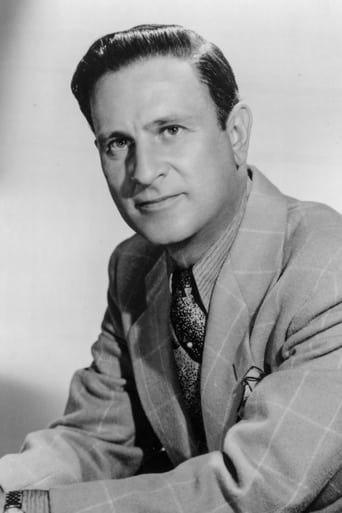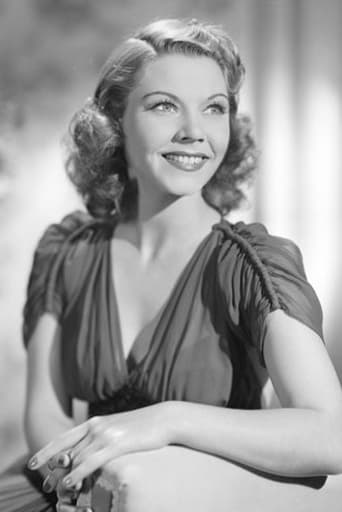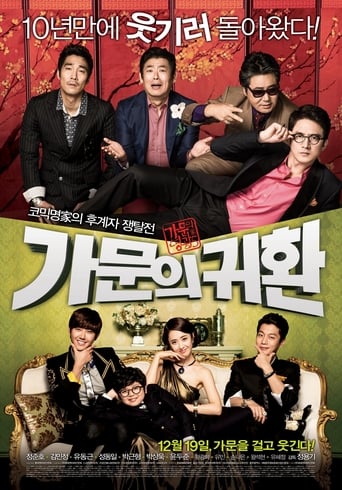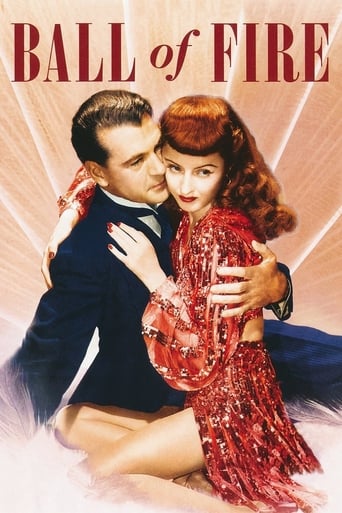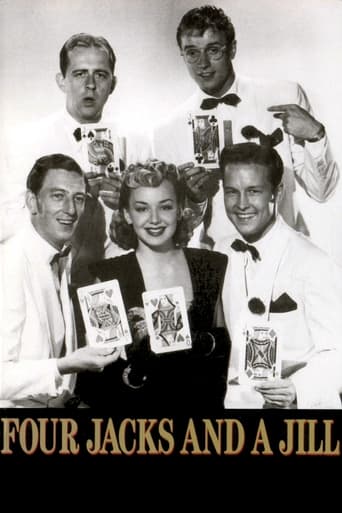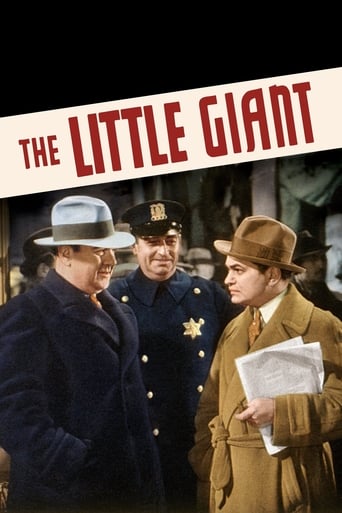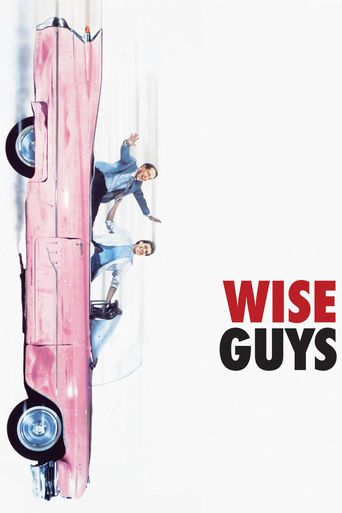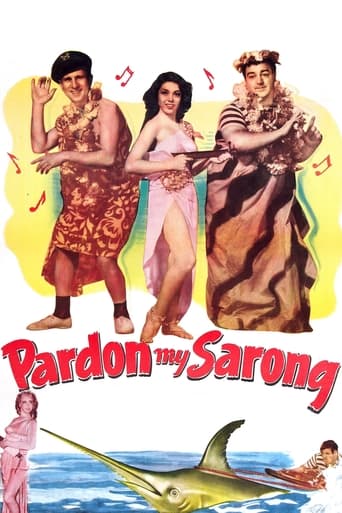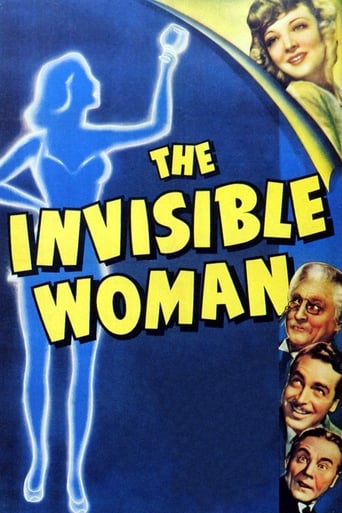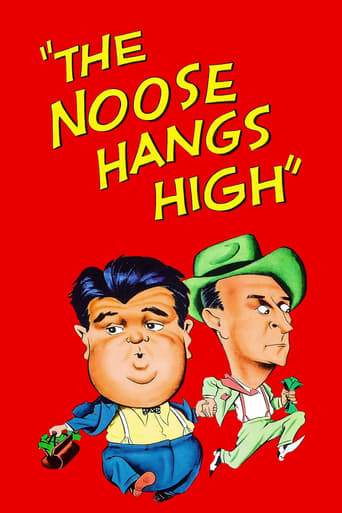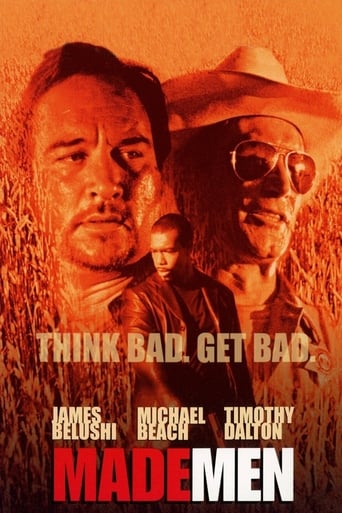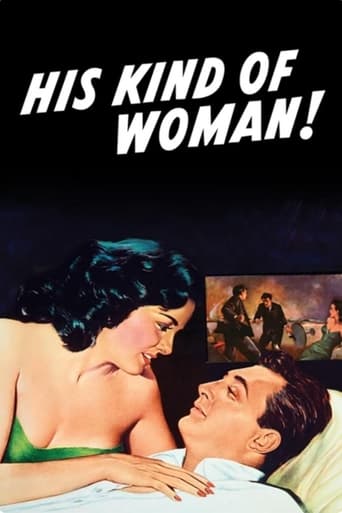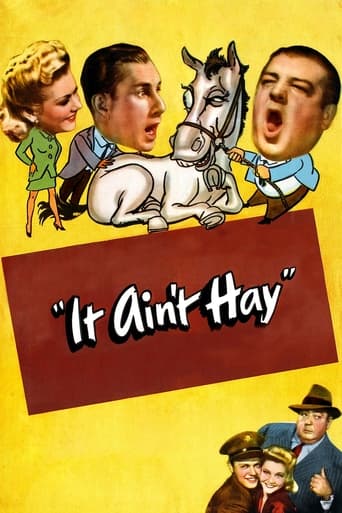
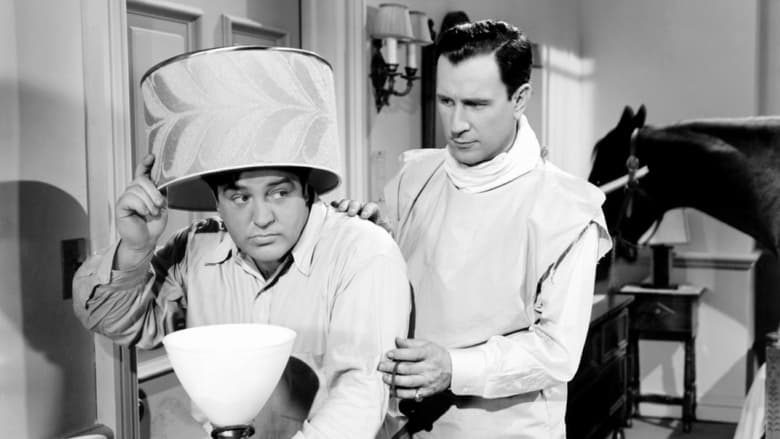
It Ain't Hay (1943)
Abbot and Costello must find a replacement for a woman's horse they accidentally killed after feeding it some candy. They head for the racetrack, find a look-a-like and take it. They do not realize that the nag is "Tea Biscuit," a champion racehorse.
Watch Trailer
Cast
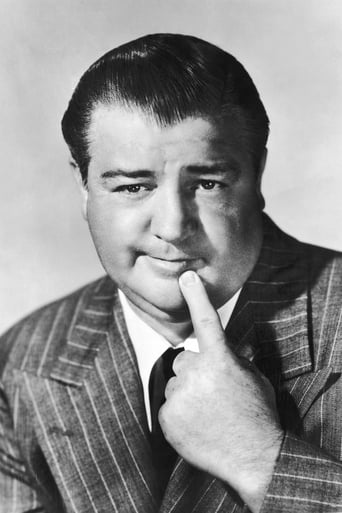
Similar titles
Reviews
Good story, Not enough for a whole film
I like movies that are aware of what they are selling... without [any] greater aspirations than to make people laugh and that's it.
Although it has its amusing moments, in eneral the plot does not convince.
Funny, strange, confrontational and subversive, this is one of the most interesting experiences you'll have at the cinema this year.
I titled my review after the 1937 Marx Brothers musical comedy of that name, which shows certain broad resemblances to the present film. As you might guess, this Abbott and Costello(A&C) musical comedy focuses on horses, both carriage and racing breeds. It initially focuses on a particular carriage horse named Finnegan, who is attached to a carriage driven by Irishman King O'Hara(Cecil Kellaway) or his teenage daughter Peggy(or Princess)(Patsy O'Conner). Costello is a friend of this family, but he gives Finnegan a piece of his peppermint stick. A few days later, Finnegan is down feeling ill. Costello gets some 'horse pills' at the pharmacy and tries to ram one down the throat through a tube. But, before he can blow the pill in, Finnegan blows it down Costello's throat, and Costello gives up. The horse soon dies, and everyone (including Lou) blames it on the candy! Lou wants to buy the O'Haras a new horse, but has no money. So, he and friend Abbott go to loan shark: Big-Hearted Charlie, who loans them $100., but at a usurious interest rate. He suggests they gamble on the horse races to get the money to pay off his loan, and directs them to phony horse race bookies, who cheat Lou out of most of his cash. Then, Lou buys a horse on the street very cheaply, only to find that it belongs to a policeman. A trio of touts then claim that a certain horse owner is giving away an old racing horse free. So, at night, they sneak there, and take the wrong horse, since the horse names on their stalls were switched. The have trouble with a suspicious Eugene Palette, but overcome his hindrance, and make off with the horse. They don't realize they took the famous Tea Biscuit until they read in the newspaper that this horse is missing. There is a $10,000. reward for the return of this horse, which the three touts plus Palette hope to collect. The boys hide Tea Biscuit in their hotel room! Palette snooped around, but couldn't find the horse in their back room. They get by Palette, hitch the horse to a carriage, and take off for the race track. Problems on the route have Lou riding the horse when he gets to the track. The horse throws him, and he lands on another horse: Rhubarb. He runs Rhubarb in the race, even though he is apparently extraneous. Tea Biscuit, running as Rhubarb, wins. Abbott, who bet $100. on Tea Biscuit, despite his presumed absence, is resigned to his loss, and tears up his ticket. But, after it's established that Rhubarb really is Tea Biscuit, Abbott finds the pieces of his ticket and is allowed to claim his winnings. Also, Costello gets the $10,000. award for bringing Tea Biscuit back. But, there's a problem. Palette already received a check for $10,000.? as his winnings. He gave the touts an advance on that. He blames Lou for this debacle, and wants Lou to give him the money he lost. Thus, we end with Palette chasing Lou around. Palette harassed Lou throughout most of the film, showing up wherever Lou went, having new reasons to want to kill him. Palette, of course, was very charismatic, with his great girth and bull frog-like voice. Thus, he tends to dominate the scenes he's in.As in most of their early films, there is a romantic couple, here in the form of Leighton Noble and the striking blond Grace McDonald. Also, as was often the case, they served as singers for several songs. However, 13y.o. Patsy O'Connor led the singing for 2 numbers: the initial "Sunbeam Serenade", while driving her carriage, and the later "Old Timer", sung to Finnegan as he lay ill. However, the 2 main production numbers were mainly sung by others. Grace McDonald led the street-located "Glory Be", while Leighton Noble led the finale stage-bound "Hang Your Troubles on a Rainbow". Believe I saw Grace do a short tap dance in this number. She was the sister of Ray MacDonald: a professional dancer, and they used to perform singing and dancing together when young. Leighton was primarily known as a singer and orchestra leader, rather than an actor. Patsy O'Connor was the niece of Donald O'Connor, who was then costarring in a series of musical comedies for Universal....The Four Step Brothers also performed their novelty-styled tap dancing and other shenanigans in both major productions. Shemp Howard, of The Three Stooges, was one of the 3 touts. He was often present in a small role in the early A&C films.....Prolific actor Samuel Hinds served as the owner of Tea Biscuit, whose name is a slight variation of that of the famous racehorse Sea Biscuit....This film is based on Damon Runyon's story "Princess O'Hara". , first made into a film in 1935. In the present film, Peggy O'Connor played the princess.Despite it's frequent nonsensical highly contrived nature, I can recommend this film for those, especially kids, who like the boys' shtick.
Abbott and Costello are at their very best in this agreeable comedy. They play a couple of Manhattan taxi drivers with a fondness for a sweet young girl and her horse. Costello means well in trying to be nice to the animal, but his feeding it candy ultimately causes the horse to get sick - and die. So he and Abbott set out to make things right by getting a new horse for the girl, whose dad (Cecil Kellaway) runs a horse and carriage ride in the city. I know that synopsis sounds rather dramatic, but there is a lot of well-staged comedy between the serious moments. And Bud and Lou are as sharp in ever performing them. Some routines include: their classic "the horse eats his fodder", the boys getting swindled at a phony horse race outfit, Lou getting into trouble at a restaurant for not being able to pay his check, and other assorted gags. Third Stooge Shemp Howard also has a part, but the real fun comes courtesy of fat man Eugene Palette, who is the perfect foil for Costello's antics. As with almost all of A&C's movie of this period, there is some singing and dance numbers here; however, I find them to be rather entertaining and endurable this time out. *** out of ****
As Youngster this comedy team became no.1 with me.They were the best at their craft.Another of their great movies was A/C Meet Captain Kidd. Iam looking forward to it's release,thank you for allowing me to express,my opinion.How much I have enjoyed all A/C movies. Thank you much appreciated and keep up the fine job you people do. I am an avid fan of A/C movies. The collection I have of their movies is great to this point in time. Two of my real favorites are The Time of Their Lives and Pardon My Sarong. I also have some photos of them. Which I cherish very much.Eventually I hope to have all 37 of their movie collection.
The comedy team of Bud Abbott and Lou Costello were in their prime in the 1940's (particularly the early 1940's) and this offering from 1943 is very funny indeed. Based on a Damon Runyon story "Princess O'Hara" (and featuring some of the classic Runyon characters such as Harry the Horse), it's been tailored for the A & C brand of comedy, and features some of their funniest routines (the "mudder & fodder" exchange, which was repeated in their later film "The Noose Hangs High"; stealing the horse, the climactic horse race scene, etc.) Like most of their early features (with the notable exception of the great "Who Done It"), there's also the mandatory songs - they are a mild intrusion, but on their own merit are quite good. (These song numbers were a stock element in the Universal comedies at the time, so you just have to tolerate them, but, like in the Marx Brothers comedies, they did seem to be there just to "pad out" the running time.) There's also a gem of a supporting performance by the great character actor Eugene Palette.Unfortunately, "It Ain't Hay" is currently tied up in legal knots, which keeps it out of circulation at the present time. Due to this, it was not included in the great A & C collection released recently on DVD by MCA, nor has it been shown on television for many years. Hopefully these legal issues will be resolved, and this fine example of the great comedy duo's work will receive the distribution it deserves.
